Moscow orders troops to prioritize destroying Ukraine’s Western-supplied long-range missiles
Nearly five months into the Russia-Ukraine war, Moscow has ordered Russian troops to prioritize destroying Ukraine’s Western-supplied long-range missiles, saying that the advanced projectiles are used to strike Russian supply lines.
On February 24, Russian President Vladimir Putin ordered a “special military operation” in Ukraine to demilitarize and 'de-Nazify' the ex-Soviet country and to “liberate” Donbas, composed of two breakaway regions of Donetsk and Luhansk.
Two days prior to the war, Moscow had officially recognized the two regions as independent republics. Luhansk has already fallen under the full control of Russian forces.
Since the onset of the operation, the United States and its European allies have supplied billions of dollars’ worth of weaponry to Ukraine and imposed waves of unprecedented sanctions on Moscow, despite Russia’s repeated warning that such Western flood of weapons will only prolong the war.
The Western-supplied weapons include long-range arms which Kiev says are beginning to help on the battlefield.
On Monday, Russian Defense Minister Sergei Shoigu ordered his generals to prioritize destroying Ukraine's long-range missile and artillery weapons. His order came after the Western-supplied weapons were employed to hit Russian supply lines.
According to a statement by the defense ministry, after inspecting the Vostok group which is fighting in Ukraine, Shoigu “instructed the commander to give priority to the enemy's long-range missile and artillery weapons.”
The statement also claimed that the weapons were being used to strike residential areas of Russian-held Donbas and to intentionally set fire to wheat fields and grain storage silos.
Zvezda, a Russian state-owned nationwide television network run by the Russian defense ministry, showed Shoigu, dressed in combat uniform, speaking alongside Deputy Defense Minister Yunus-Bek Yevkurov.
Kiev hopes the war is at a turning point, claiming that Russia has used up its attack capabilities to capture a few small cities in eastern Ukraine, while Ukrainian troops has now fielded long-range Western-supplied missiles that can hit behind Russian lines.
The Ukrainian government further claims that its troops has conducted a number of successful strikes on 30 Russian logistics and ammunitions hubs, employing several multiple launch rocket systems supplied by the West recently. It also claims that such strikes have crippled Russia’s artillery-dominated troops that need to move thousands of shells to the front on a daily basis.
For this reason, according to the statement by Russia’s defense ministry on Monday, Shoigu had ordered the military to focus on eliminating Ukraine's Western-supplied rockets and artillery.
Russian forces, according to Kiev, are now concentrating to seize the last Ukrainian-held pocket of Donetsk through another assault.
Russia’s alleged block on Ukraine grain starve thousands: EU warns
Separately on Monday, European Union’s foreign policy chief Josep Borrell warned that purported Russia's siege on Ukrainian ports threatens grain supplies to tens of thousands of people vulnerable to starvation.
“It's an issue of life and death for many human beings. And the question is that Russia has to de-block and allow Ukrainian grain to be exported,” Borrell said at a press conference.
The ongoing war, and its subsequent blockade on Ukraine’s Black Sea ports, has endangered the world food supply by preventing Ukraine from shipping its agricultural products.
Ukraine, one of the world’s biggest grain producers, is a major exporter of corn, barley, sunflower oil and rapeseed oil. However, it now cannot export its grain via its Black Sea ports due to the war, which has reduced its grain exports in May by more than half compared to a year ago.
In a bid to resolve the issue, Russian and Ukrainian negotiators will meet UN and Turkish diplomats in Istanbul on Wednesday to discuss a possible agreement to end the persisting blockade of Ukraine's ports.
“The most worrisome thing is the lack of food in many countries around the world, and there is not food because Russia is blocking the export of Ukrainian grain,” Borrell added, expressing hope that the talks would lead to an agreement to lift the months-long blockade.
However, Germany's Agriculture Minister Cem Ozdemir did not share Borrell's optimism.
“There are the negotiations in Turkey. I don't think much will come out of them. If you believe in Putin's word, you might as well believe in Father Christmas or the Easter Bunny,” he said, adding, “I don't believe the Black Sea will be safe again for Ukraine as long as Vladimir Putin or a comparable criminal in Moscow is in charge. Brussels must look for a permanent alternative route.”
Meanwhile, Russian foreign ministry spokesman stressed that Russian negotiators would attend the meeting with a list of firm demands, including the right to search grain ships for weapons.
VIDEO | Rome, Milan host new protests in solidarity with Palestinians
Dec. 21: ‘Axis of Resistance’ operations against Israeli occupation
Spain jurists demand ties with Israel ties be cut
VIDEO | Press TV's news headlines
VIDEO | Iran honors top Science Olympiad medalists
VIDEO | Austrians arrested at Gaza protest in Vienna
10 killed in bus crash in western Iran
VIDEO | One-man-band journalism with Civili


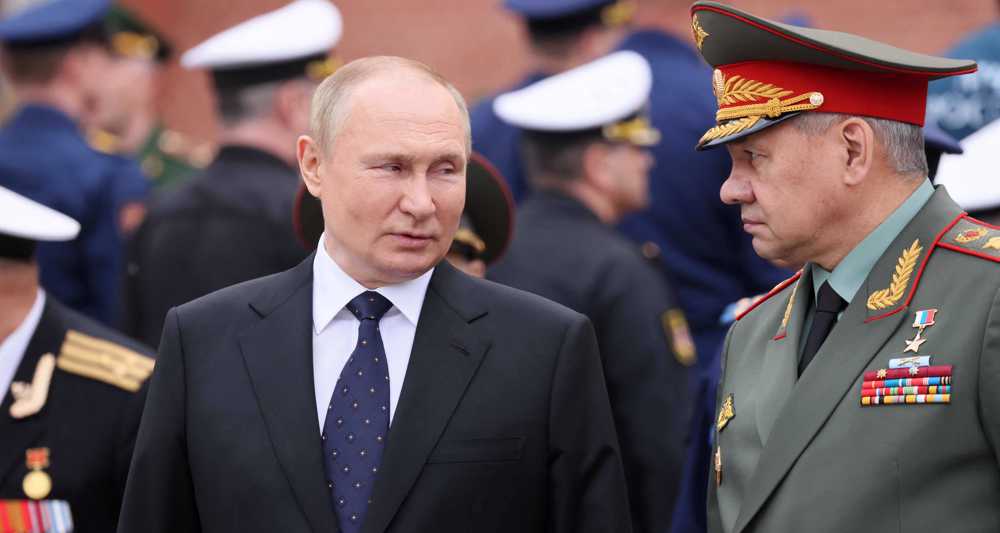
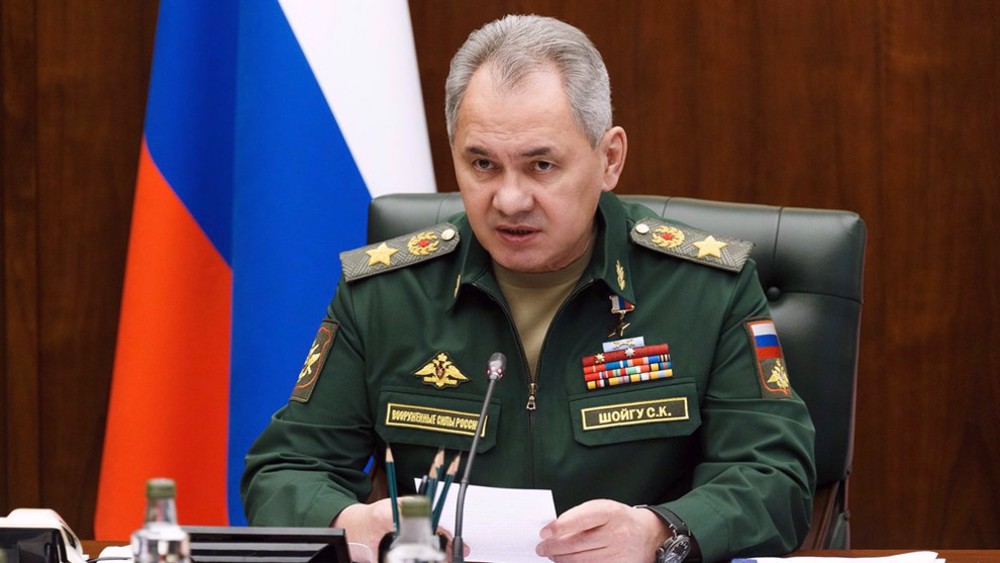
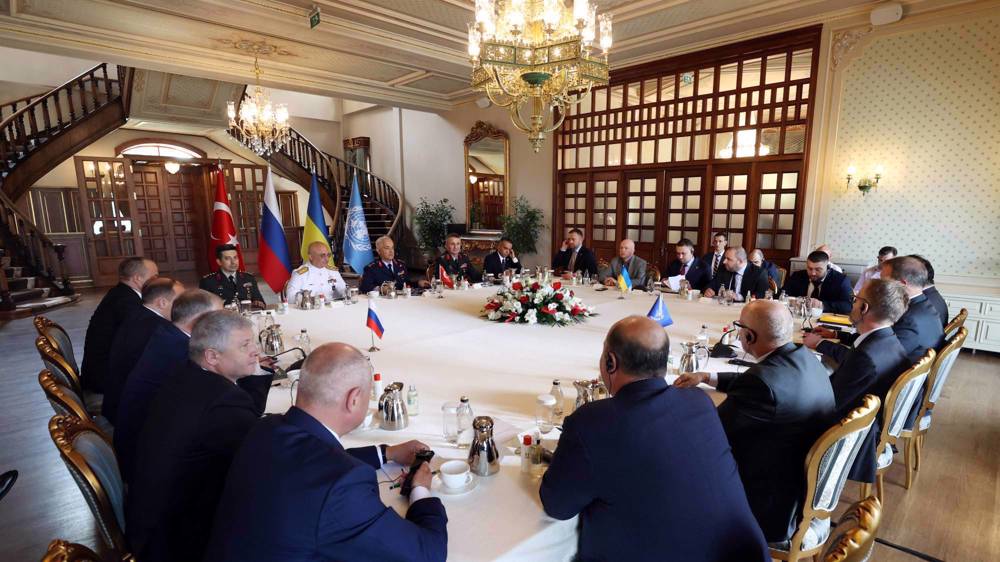


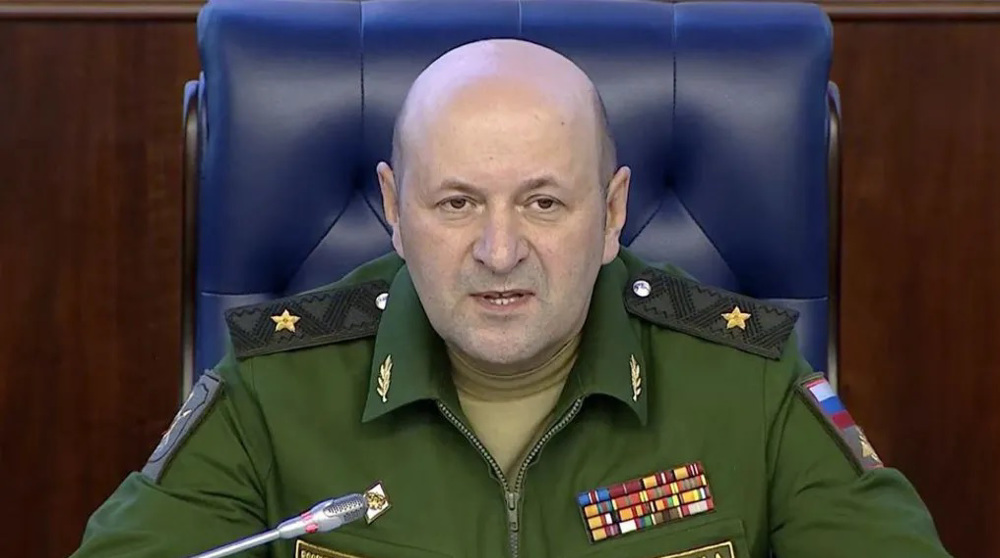



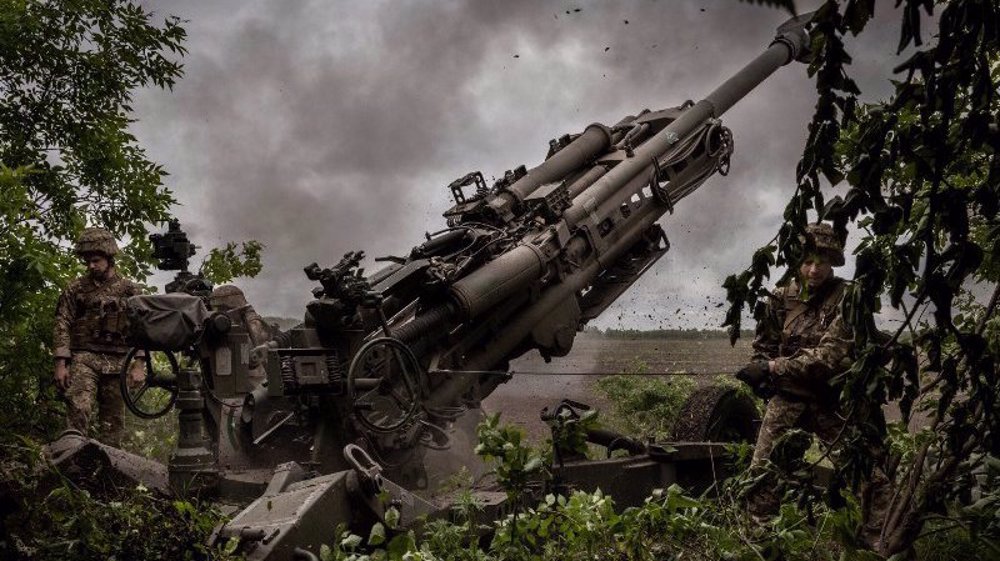

 This makes it easy to access the Press TV website
This makes it easy to access the Press TV website